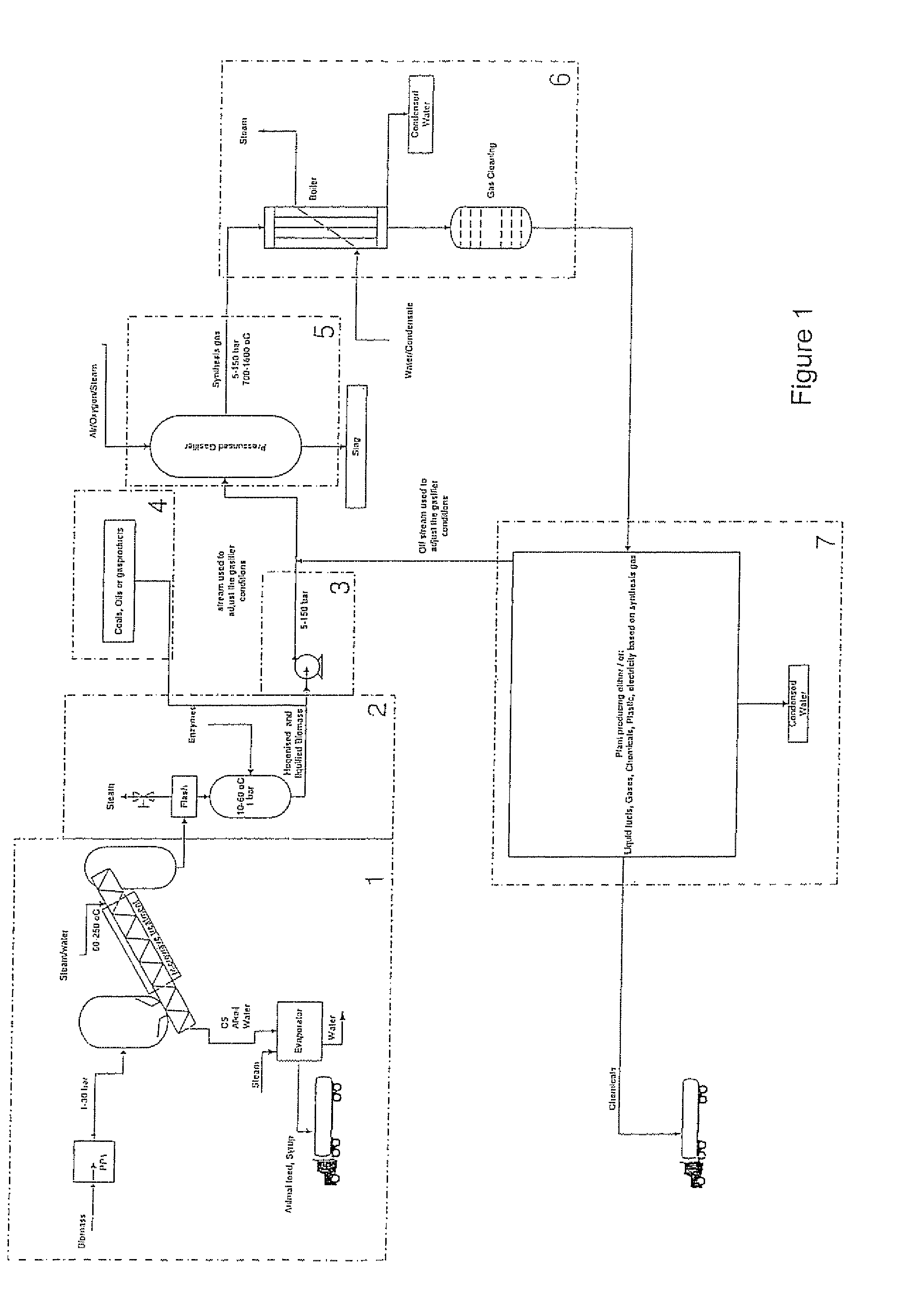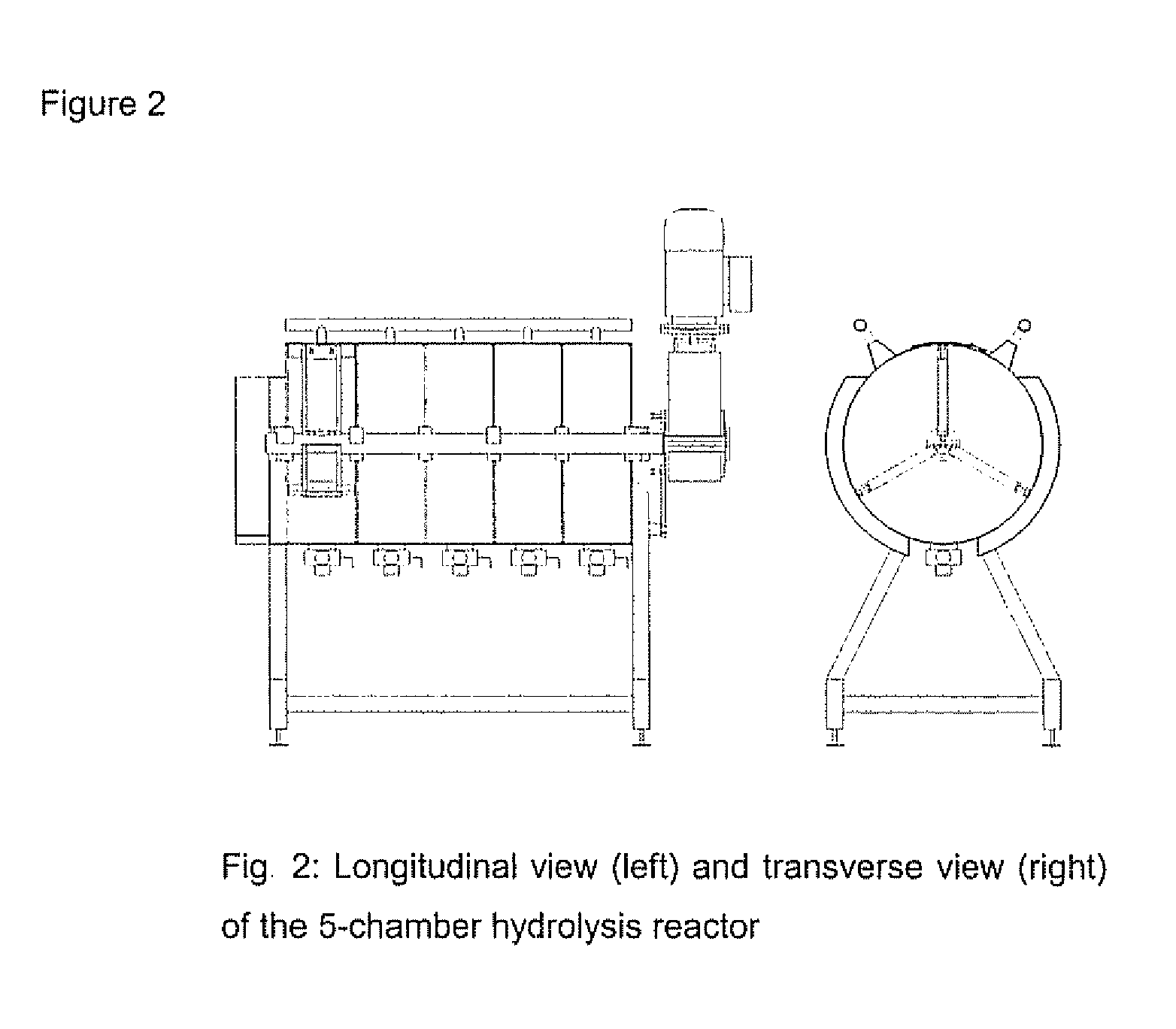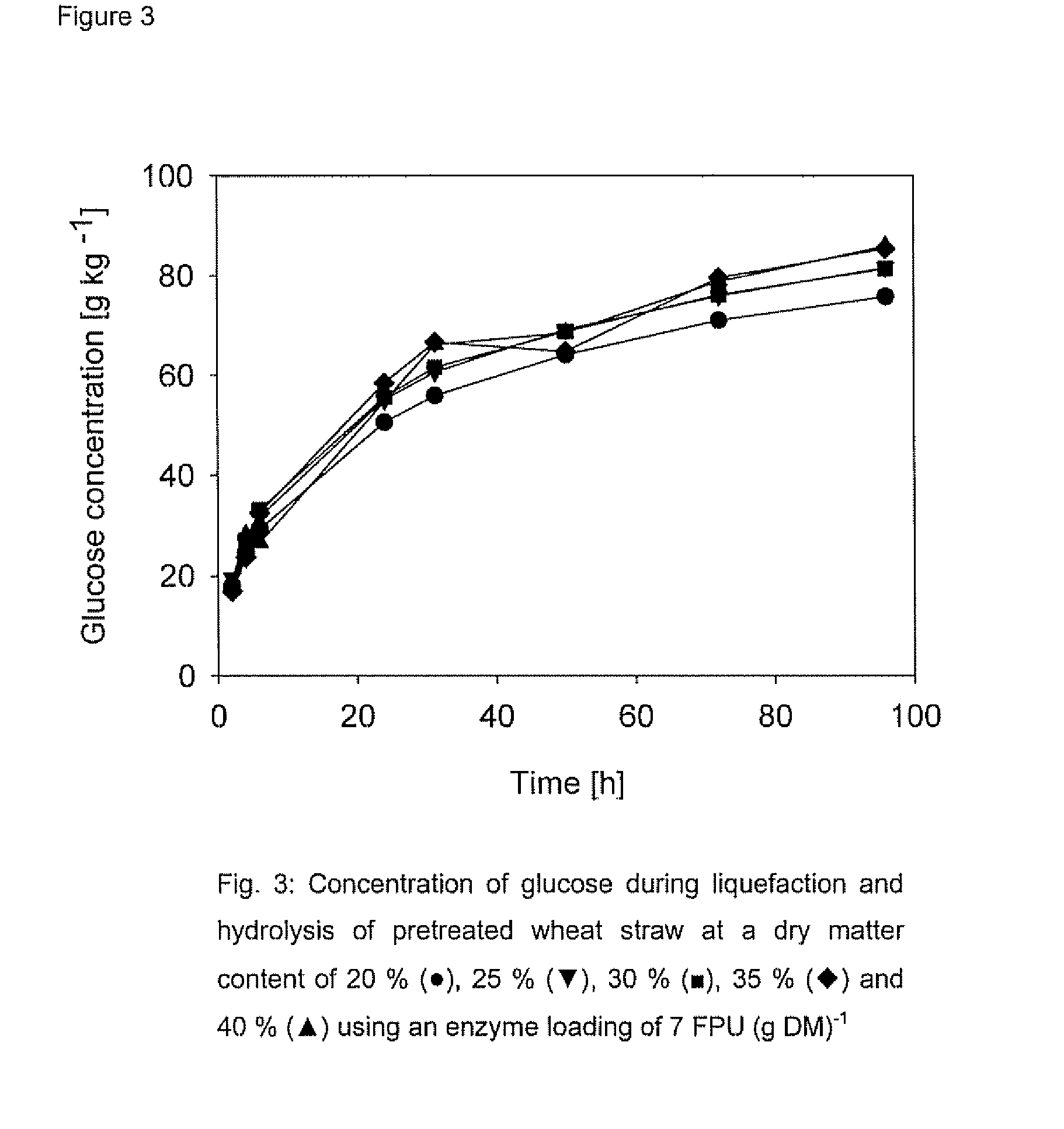Method for syngas-production from liquefied biomass
a technology of biomass and syngas, which is applied in the direction of gaseous fuel, combustible gas production, waste based fuel, etc., can solve the problems of increasing viscosity and reducing pumpability, and achieves the effects of reducing pumpability, high dry matter content, and increasing viscosity
- Summary
- Abstract
- Description
- Claims
- Application Information
AI Technical Summary
Benefits of technology
Problems solved by technology
Method used
Image
Examples
example 1
Enzymatic Liquefaction of Pre-Treated Wheat Straw
[0119]Pressed pre-treated wheat straw with an average size of approximately 40 mm (pre-treated by counter-current water extraction at 180-200° C. for 5-10 min. with water and dry matter flow ratio of 5:1) corresponding to 7 kg DW (=20 kg pre-treated straw) was put into a conventional rotary cement mixer, with a horizontal axis tilted about 10 degrees. The mixer had 2 internal ribs along the long axis to ensure mixing of the material. A lid was mounted on the opening to avoid evaporation from the mixer. The mixer drum rotated along the horizontal axis with a speed of 29 rpm.
[0120]200-1150 mL of Celluclast 1.5 FG L and 40-225 mL of Novozym 188 were added to the straw. This resulted in a final dry matter content of 30%. The enzyme loading corresponded to 3-15 FPU / g DM. The pH was adjusted to 4.8 to 5.0 by addition of sodium carbonate.
[0121]The cement mixer was heated to 40-45° C. by use of a fan heater. The mixing / hydrolysis of the mater...
example 2
Enzymatic Liquefaction and Hydrolysis at 20-40% DM
[0123]The hydrolysis reactor was designed in order to perform experiments with liquefaction and hydrolysis solid concentrations above 20% DM. The reactor (FIG. 2) consisted of a horizontally placed drum divided into 5 separate chambers each 20 cm wide and 60 cm in diameter. A horizontal rotating shaft mounted with three paddlers in each chamber was used for mixing / agitation. A 1.1 kW motor was used as drive and the rotational speed was adjustable within the range of 2.5 and 16.5 rpm. The direction of rotation was programmed to shift twice a minute between clock and anti-clock wise. A water-filled heating jacket on the outside enabled the control of the temperature up to 80° C.
[0124]The chambers were filled with pressed pre-treated wheat straw with an average size of approximately 40 mm (pre-treated by counter-current water extraction at 180-200° C. for 5-10 min. with a water and dry matter flow ratio of 5:1) and water to give an init...
example 3
Whole Crop Liquefaction (Starch and Lignocellulose)
[0125]Lignocellulosic and starch containing biomass can be processed simultaneously using gravity mixing and a mixture of cellulases, hemicellulases and amylases. The lignocellulosic biomasses may be derived from agricultural crops consisting of e.g. corn stover, straw e.g. from rice, wheat, rye, oat, barley, rye, rape and sorghum, tubers e.g. beet, potato, cereals from e.g. rice, wheat, rye, oat, barley, rye, rape, sorghum, wood consisting of softwood e.g. Pinus sylvestris, Pinus radiatae hardwood e.g. Salix spp., Eucalyptus spp., municipal solid waste, waste paper and similar biomasses.
[0126]The hydrolysis reactor described in example 3 was used for the experiments. Wheat straw (primarily a lignocellulose source) was pre-treated using counter-current water extraction at 180-200° C. for 5-10 min., with a water and dry matter flow ratio of 5:1. Wheat grain (primarily a starch source) was dry milled using a Kongskilde roller mill. Th...
PUM
| Property | Measurement | Unit |
|---|---|---|
| size | aaaaa | aaaaa |
| particle sizes | aaaaa | aaaaa |
| temperature | aaaaa | aaaaa |
Abstract
Description
Claims
Application Information
 Login to View More
Login to View More - R&D
- Intellectual Property
- Life Sciences
- Materials
- Tech Scout
- Unparalleled Data Quality
- Higher Quality Content
- 60% Fewer Hallucinations
Browse by: Latest US Patents, China's latest patents, Technical Efficacy Thesaurus, Application Domain, Technology Topic, Popular Technical Reports.
© 2025 PatSnap. All rights reserved.Legal|Privacy policy|Modern Slavery Act Transparency Statement|Sitemap|About US| Contact US: help@patsnap.com



